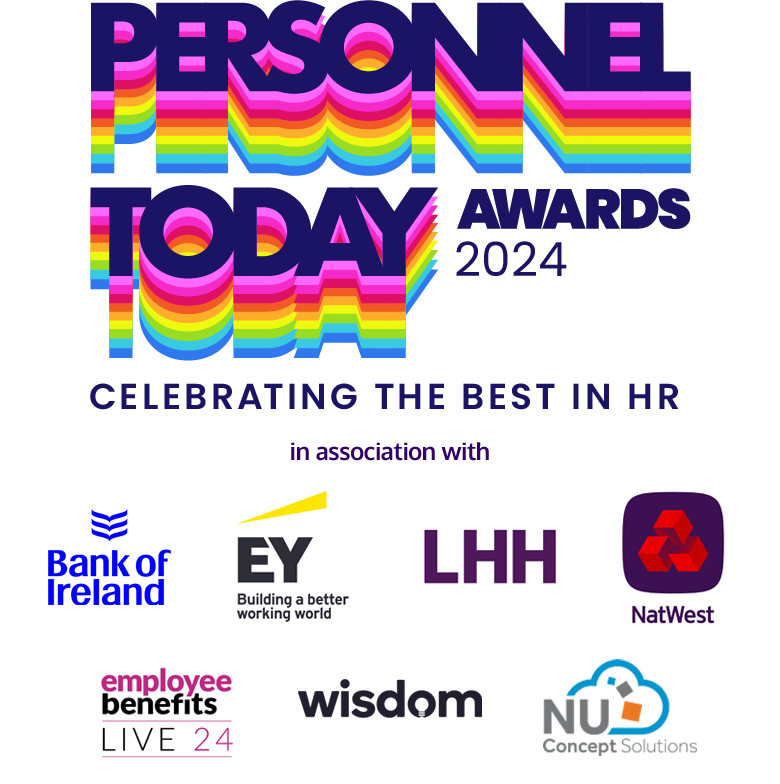E.ON’s commitment to supporting diverse work styles was a crucial element in the Personnel Today Awards judges’ decision. The company was recognised for doubling internal promotion rates for part-time workers and enhancing work-life balance, while fostering a culture of trust. We look at their winning entry and those of our other finalists in a very closely contended field.
WINNER
E.ON
E.ON’s employee value proposition provides guidance for its policies to deliver E.ON Life, which includes flexible working as a key part of the employee experience.
All jobs at the company are advertised as flexible and hybrid, with options to work part-time, full-time or in a job share from the first day of employment.
Although the business has always offered flexible working options, employee feedback showed that staff had benefitted from and valued the additional flexibility in the form of home working since the pandemic.
A key part of E.ON’s workforce strategy, its hybrid working model has helped all its staff – from those with disabilities who can better manage their conditions and remain in work, to working dads who are able to do more household tasks and school runs than previously.
E.ON started with Flexible Working Principles which meant there was no need to submit formal requests for flexible working and that the company’s starting position would always be a yes.
The business clearly communicated support for hybrid working at a senior level, shared stories through a podcast and its Working Families Network. It communicated with its teams that flexible working arrangements were available to all as an alternative to traditional part-time working, along with creating guidance on the more complex areas of flexible working such as job shares.
In the first six months of advertising all roles as flexible, internal promotion rates of part-time workers doubled, and lateral moves went from 5% to 17%, vastly improving career mobility.
The drive to boost flexibility and enable staff to balance their commitments spurred the company to find other ways to support its workforce, including by offering four weeks of paid neonatal leave, two weeks of paid leave for pregnancy loss for both partners, and unlimited paid fertility leave for both partners.
Personnel Today Awards
All our 2024 winners revealed
View the 2024 photo gallery
The Personnel Today Awards 2025 open for entries around Easter
Sign up to keep updated
RUNNERS-UP
Currys
When the pandemic hit, electrical retailer Currys realised that understanding employees’ needs and preferences would be crucial in ensuring its people stayed connected and made a commitment to spend more time listening to staff.
At the outset, the company shut down all facilities and utilities, leaving its traditional headquarters and embracing a more flexible arrangement with WeWork. Survey results post-transition showed positive employee feedback, with 92% feeling positive about the hybrid approach and 88% planning to regularly use the new workspace.
Currys developed four key principles to guide its hybrid working policy: Be Connected, Be Intentional, Be Inclusive and Be Flexible.
It implemented wellbeing support and set up an online hybrid working hub to support managers and those working remotely. It also introduced a meeting-free hour and an extended meeting-free zone, as well as activities to reinforce the physical connections.
According to the company, its hybrid working principles have had a significant positive impact on trust, autonomy and work-life balance.
Attrition is now around a third of what it was on average for corporate roles before the move to hybrid working and every one of the 1,400 employees who moved from the head office did so with no grievances and no resignations.
Its hybrid working approach enables the company to recruit from across the UK, creating a more diverse talent pool. Engagement scores have also increased, with Currys recognised as being in the top 5% of companies for engagement by Great Place to Work.
Mauve Group
Mauve Group’s flexible working provision offers staff flexible hours, part-time, hybrid and remote working options. Led by CEO and co-founder Ann Ellis, its commitment is particularly focused on supporting women in business and more than 60% of the company’s senior leadership team and over 70% of its managers are now female.
The post-pandemic challenge faced by Mauve Group, which offers global employment services, was catering for an expanded workforce and a greater number of hybrid and flexible workers across six continents.
An analysis of employee data in 2023 showed its staff retention rate has stayed above 90% and almost all employees onboarded after the implementation of new hybrid work initiatives in 2022 remain at the organisation.
During the pandemic, Mauve Group implemented a relocation policy, offering employees the opportunity to move with comprehensive financial and administrative support, which has since become permanent.
To provide accessible learning opportunities for all employees, a digital learning and development portal was launched in January 2024, providing all staff across the organisation with training opportunities.
In response to the pandemic, the company rewrote its flexible working policies to support remote, hybrid, and in-person arrangements and allow living outside major cities, also reducing commuting time and supporting diverse, inclusive hiring.
Mauve Group also introduced several strategic initiatives and, in 2023, undertook a project to implement a new global pay and grading structure to ensure fairness and equity within its hybrid working model. It has also launched Mauve Insight, a secure web-based application which gives clients and employees access to employment-related data from any location.
In 2022, Mauve Group established a Glassdoor page to gather employee feedback. In March 2024, a current employee stated that the “in-office, hybrid or remote work choices offer flexibility to employees which cultivates an ideal work environment suited to each person. [Mauve is] committed to both employees and customers”.
Phoenix Group
As with many employers, the pandemic brought hybrid working into focus and Phoenix Group’s employees wanted to retain the flexibility they’d experienced through this period.
The company, the UK’s largest long-term savings and retirement business, developed an approach that was fit for the long term to address tensions between leaders keen to return to office and staff wanting to retain more time at home.
It set clear principles for how this should be adopted across the organisation and, to develop its approach, listened to its 7,000-plus colleagues with the use of direct surveys, focus groups and engagement sessions. It also looked at internal data and external insights to review existing practices and improve them based on industry best practice.
The company created Phoenix Flex – an approach to flexible working that means once customer, stakeholder and team needs are met, employees decide where, when and how to achieve their objectives.
The business reflected its hybrid principles through new policies including a hybrid working guide, flexible working policy, home working policy, working abroad policy and right to disconnect policy. Phoenix supported staff to embed the new policies through sessions and guides to address questions and concerns.
To support Phoenix Flex, it also made changes to physical and virtual workspaces. These included equipping staff with devices to support them in working and connecting from anywhere, creating learning to help them get the most from their technology, investing in changes to office spaces based on feedback, offering hybrid solutions for all engagement activity and developing a ‘Tech Bar’ solution to respond to demands for in-person IT support.
The company delivered hybrid training to all managers and engaged a cross-section of leaders to help create solutions that will be rolled out across the business.
Phoenix runs controlled flexible working trials to better understand what works – including a four-day week and compressed hours. It also regularly shares case studies and holds events to promote discussion on flexible work.
Feedback from its engagement survey shows that across the main drivers of flex, there has been a continued increase in employee net promoter scores since launching Phoenix Flex in June 2023.

Sign up to our weekly round-up of HR news and guidance
Receive the Personnel Today Direct e-newsletter every Wednesday
Latest HR job opportunities on Personnel Today
Browse more human resources jobs

